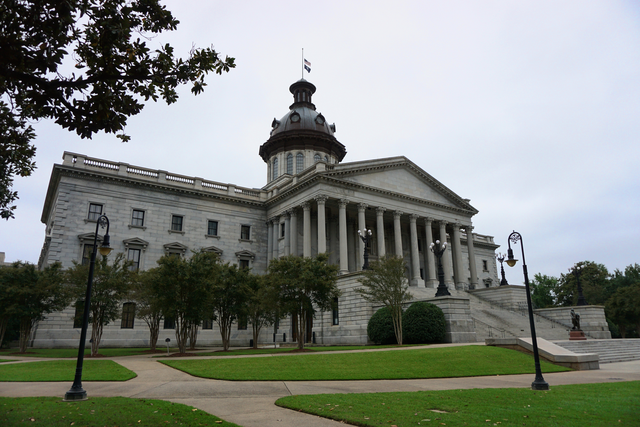
Thinkstock
South Carolina State House
South Carolina is poised to join the majority of states that keep teenagers in the juvenile justice system until their 18th birthday.
Senate lawmakers approved “raise the age” legislation (SB 916) late Tuesday that would increase the upper age of juvenile jurisdiction from 16 to 17 for most young offenders. All but nine states already consider teenagers juveniles until they turn 18.
The legislation sailed through the Senate on a vote of 37-0; the House had approved it 102-0 earlier this month.
Advocates applauded passage of the legislation, which now goes to the desk of Gov. Nikki R. Haley, a Republican.
Sue Berkowitz, director of the South Carolina Appleseed Legal Justice Center, said the bill’s relatively smooth passage is a sign that lawmakers are persuaded that young people do best in a system designed for rehabilitation.
“It just shows there’s been a real shift in the debate about how we should treat children,” she said.
The South Carolina legislation would take effect in 2019 and includes an exception for youth charged with certain violent crimes.
[Related: States Consider Legislation to Raise the Age for Juvenile Court Into Young Adulthood]
Supporters of raising the age across the country have made their case using a growing body of research into adolescent brain development that says teenagers are different than mature adults. Raising the age brings older teenagers into a system they say is better able to focus on rehabilitation.
Nationally, most states set 17 as the upper boundary for juvenile jurisdiction. Of the nine that do not, seven states set an upper boundary of 16, while two, North Carolina and New York, set it at 15. In nearly every state, there’s an active campaign to raise the age
Marcy Mistrett, CEO of the national advocacy group Campaign for Youth Justice, said lawmakers have embraced the idea that they're more likely to improve outcomes for teenagers in juvenile than adult court. The decrease in juvenile arrests and detentions means states have greater capacity to accommodate older teenagers, she said.
The momentum also reflects the smooth transitions that other states have experienced when they made more teenagers eligible for juvenile court.
"Everyone says it was the right thing to do," Mistrett said. "We have no buyer's remorse."
In Louisiana, lawmakers also hope to pass legislation this year that would raise the age. Two key House committees have approved the bill, setting up a floor vote as early as this week. The Senate has approved the bill 33-4, and Gov. John Bel Edwards, a Democrat, is a strong supporter of it.
“With an eye toward public safety, research shows consistently that the juvenile justice system does a better job at preventing recidivism. That means fewer future crime victims, and less money spent on incarceration down the road,” Edwards said in a statement on the bill earlier this year.
Advocates also are optimistic for action in Michigan, where the House has voted for a bill that would raise the age to a young offender's 18th birthday.
Meanwhile, Connecticut Gov. Dannel P. Malloy, a Democrat, continues to press hard for legislation that would raise the age beyond 18, until a young adult’s 21st birthday — a change that would be the most far-reaching raise the age provision in the country.
Both the Connecticut House and Senate delayed votes on the bill during a special session to resolve the state’s budget shortfall, leaving its prospects for passage uncertain. If lawmakers vote on the bill, a close vote is expected, according to news reports.
This story has been updated.
More related articles:
Jailing Vulnerable Youth for Status Offenses Help No One
Alternatives for Justice-Involved Youth with Mental Health Needs Finally Start to Appear